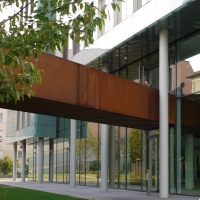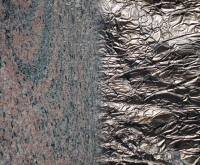The Aesthetic of Rust: Weathering Steel
Wed, Feb 03, 2010Weathering steel, more commonly referred to by the U.S. Steel tradename Cor-Ten�, is a group of steel alloys that develop a stable oxidation requiring no additional coating. Upon exposure to normal environmental stresses, it acquires a dense, dark brown colored barrier layer that protects it from further oxidation.
Many people like the natural appearance and simple maintenance that weathering steel fabrications provide. In addition to being used in structural framing, roofing and siding panels, weathering steel is often used for decorative fabrications, including signage and sculptures.



